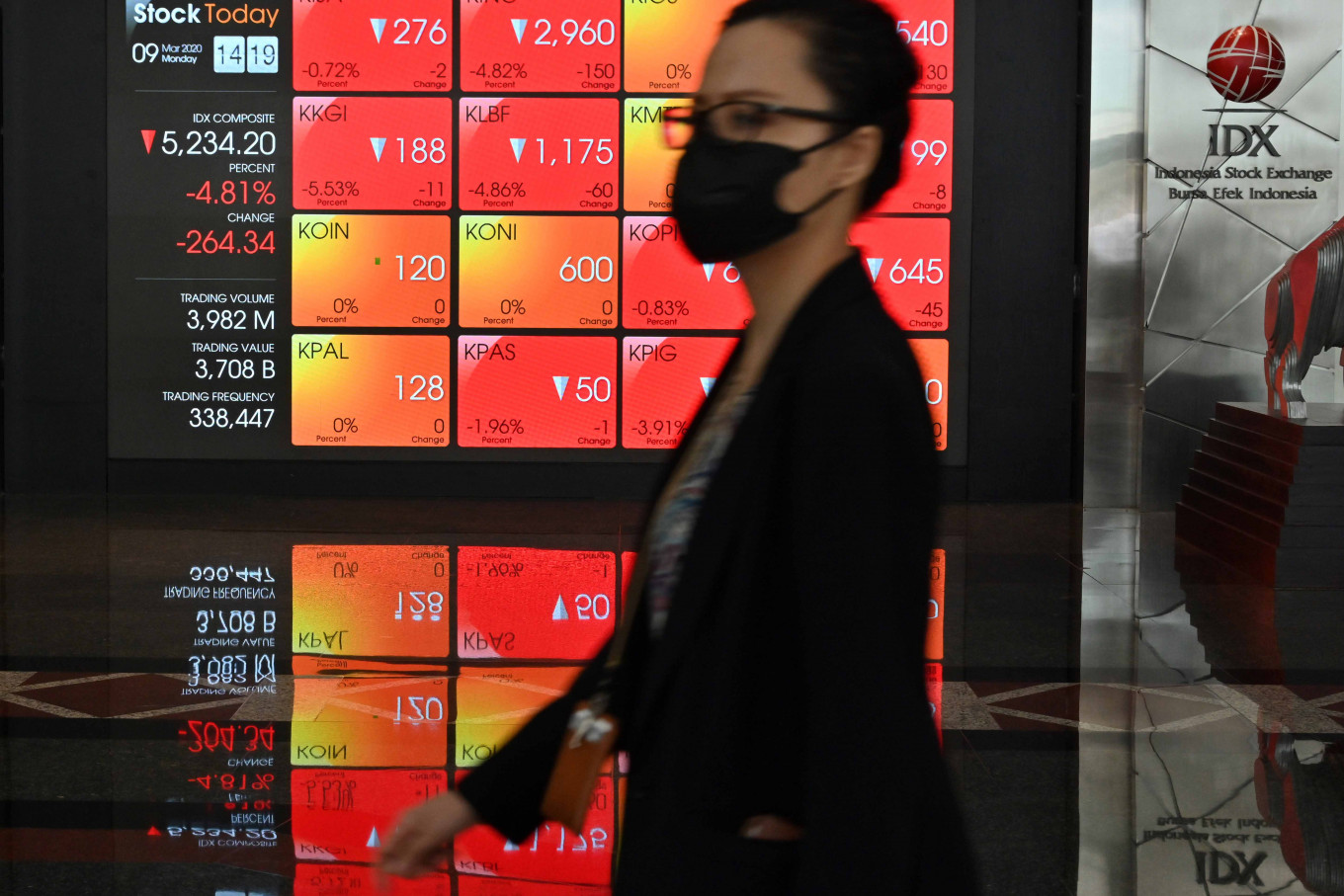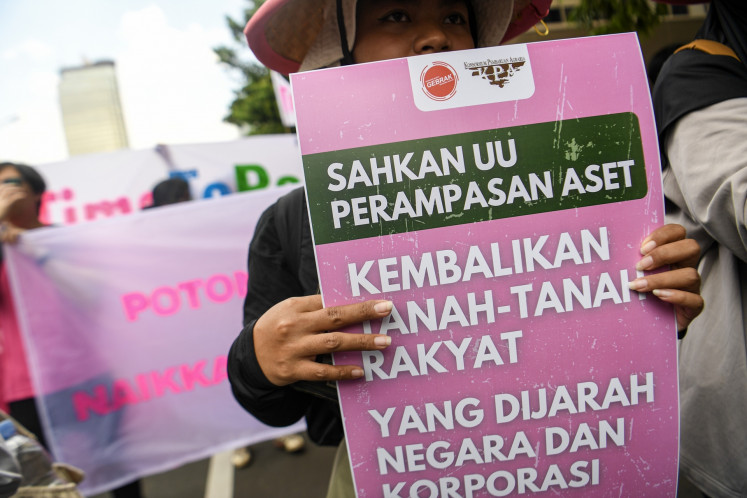Popular Reads
Top Results
Can't find what you're looking for?
View all search resultsPopular Reads
Top Results
Can't find what you're looking for?
View all search resultsFinancial authorities need to educate new investors
Industry professionals and analysts have raised a flag on the need to step up financial literacy and education efforts to protect new and prospective investors from potential losses – as well as inadvertently falling foul of investment laws.
Change text size
Gift Premium Articles
to Anyone
C
apital market experts have called on the country’s financial authorities to ramp up investor education efforts to protect non-professional individual investors entering the securities market with hopes of making a quick buck.
Entertainment celebrities Raffi Ahmad and Ari Lasso recently promoted certain stocks on their social media accounts, saying they had made profits from the stocks and encouraging their followers to follow suit.
However, new retail investors jumping in headfirst might find themselves caught on the wrong end of a trade, with analysts and traders pointing out that the “celebrity-promoted” stocks were questionable investment options.
Among this newly emerging group of “stock influencers” are the President’s youngest son, Kaesang Pangarep, and Islamic preacher Yusuf Mansur, who has recently gained popularity.
The two are known for posting their stock picks and advice, respectively dubbed “Sangmology” and “Mansurmology”, on their social media accounts.
Meanwhile, an Instagram account offering stock market education has posted screen grabs of several users who said they had pawned their physical assets or borrowed funds through peer-to-peer lending platforms to buy stocks as a “get rich quick” strategy.
“Authorities should remind these so-called stock influencers to disclose their ownership of the shares they are promoting” so new investors could determine whether their advice represented a conflict of interest, University of Indonesia equities expert Budi Frensidy told The Jakarta Post on Jan. 22.
“If they do have a conflict of interest, then it is likely market manipulation.”
Budi thus urged both the Indonesia Stock Exchange (IDX) and the Financial Services Authority (OJK) to intensify their education efforts to help new investors better understand the stock market.
“Stock market education programs should not just emphasize potential [yields] but also the [stocks’] downside risks, which could have a detrimental impact on investors, just like we saw last year during the financial market crash,” he said.
Budi also suggested financial authorities should review the auto rejection mechanism implemented last year, which suspended trading for a stock if its price fell 7 percent or jumped 20 percent.
“This rule is simply asymmetric, as it signals that authorities will allow stocks to increase [in price], but not allow [stock prices] to fall to protect investors,” Budi continued.
“This has made investors more aggressive.”
As the coronavirus outbreak spread across the country last year, millions of young Indonesians found themselves stuck at home with extra money and time on their hands, and some discovered a new appetite for investment.
At the same time, a series of pandemic-induced stock crashes gave these new investors a way to enter the market on the cheap.
Despite tumultuous capital market, the Indonesia Stock Exchange (IDX) saw a 55.83 percent rise in the number of single investor identification (SID) to 3.87 million new investors as of Dec. 29, 2020, and the number of active retail investors jumping about four times from January’s figure to 206,000 individuals.
The SID is an identification number issued by the Indonesian Central Securities Depository (KSEI) that individual investors must have to trade in domestic stocks, bonds and mutual funds.
The Jakarta Composite Index (JCI) fell 1.89 percent on Monday, but it is estimated to have gained 22 percent over the last six months as progress in vaccine development and Joe Biden winning the US election drove financial markets around the globe, including the IDX.
Anugerah Mega Investama director Hans Kwee said that first-time investors must thoroughly familiarize themselves with all risks and features of the investment they were considering.
“The market is currently on a bullish trajectory and that may have encouraged influencers to show off their investment gains, but investors should be more careful,” Hans told the Post in a phone interview last Friday.
“It wouldn’t be a great idea to invest in stocks by [taking on] debt, as this would confront investors with a double risk: repaying the debt and [potential] decrease in stock prices.”
The IDX offers many investor education programs for the general public, including certification courses and an e-library in cooperation with the Indonesia Capital Market Institute (TICMI), as well as its own Capital Market School.
IDX development director Hasan Fawzi said the bourse also held webinars and workshops as well as social media campaigns and encouraged prospective investors to take advantage of these programs. Hasan appealed to potential investors not to buy stocks by using “loans, emergency funds, daily funds or other short-term funds”, he said in a statement sent by text message on Jan. 18.
“We encourage investors to keep learning and increase their understanding of investing in stocks,” he stressed.
Separately, OJK deputy commissioner of consumer education and protection Sardjito told the Post on Jan. 22 that the agency was making concerted efforts to educate investors about financial products and services as it continued to alert the public on fraudulent investment schemes.
“We will be more aggressive with our education programs during the pandemic, but investors must really know what they are buying [...]. They should know the risks first before starting to invest in a stock,” said Sardjito, including the performance, history and products of the company whose stocks they were investing in.
“Anyone who [gives] an opinion on a company’s stock must base it in fact, and should not just endorse [the stock] baselessly,” he added. “If someone is not careful enough and does something that affects the stock movement, that action is certainly punishable by law.”










